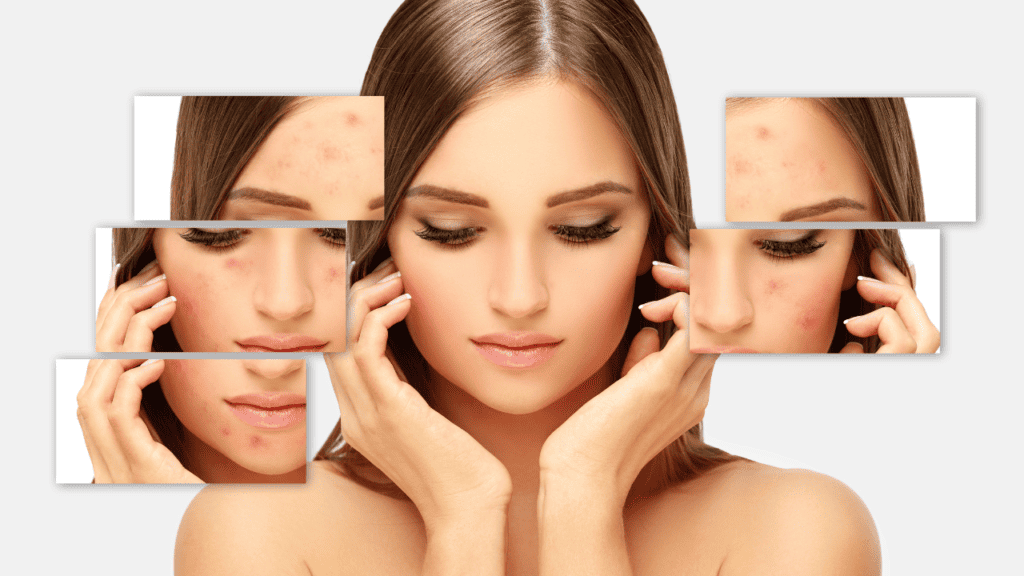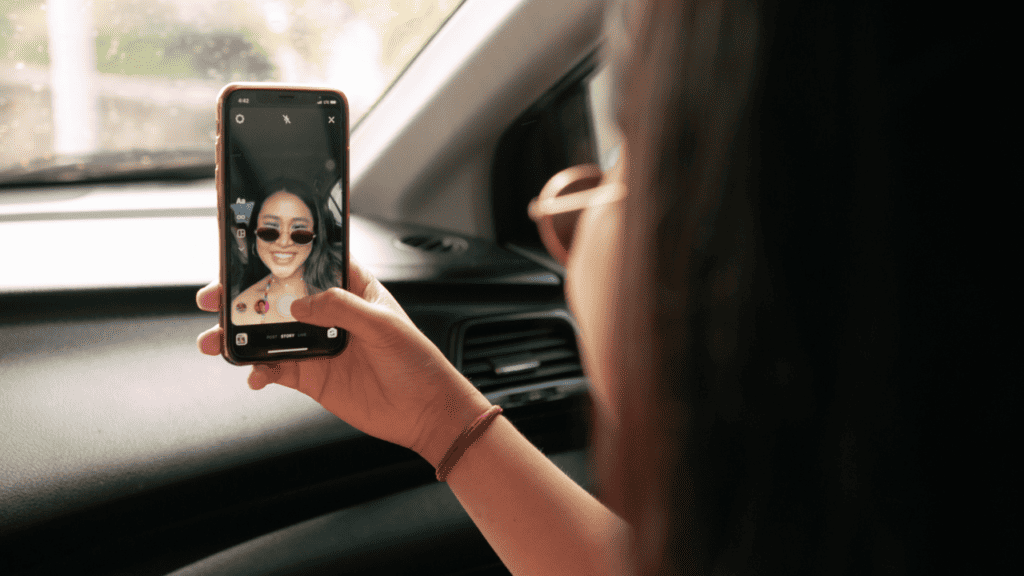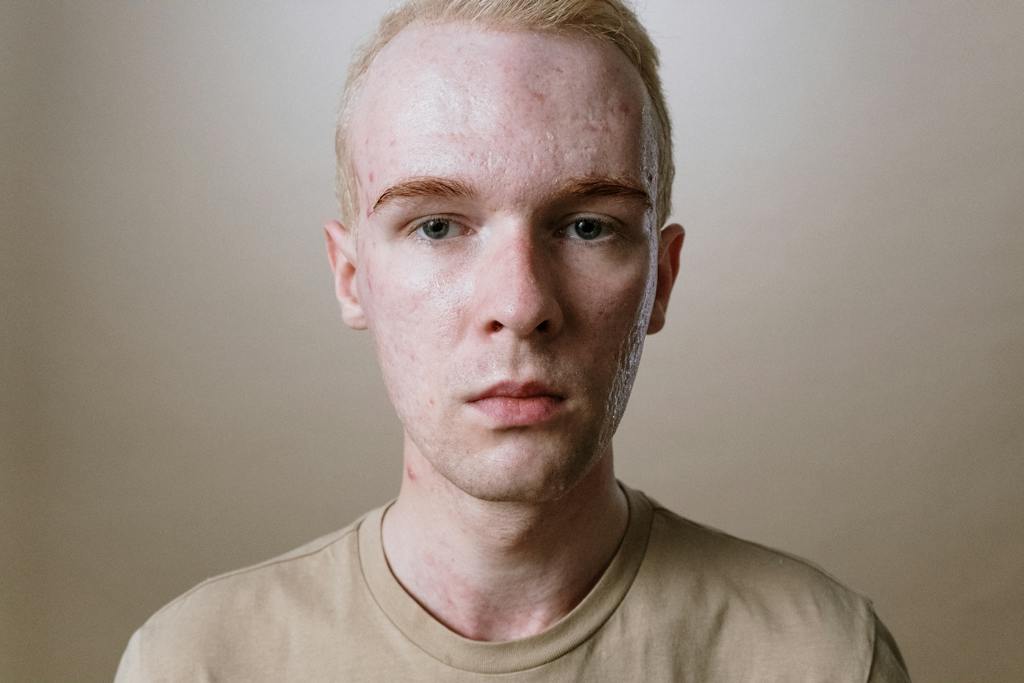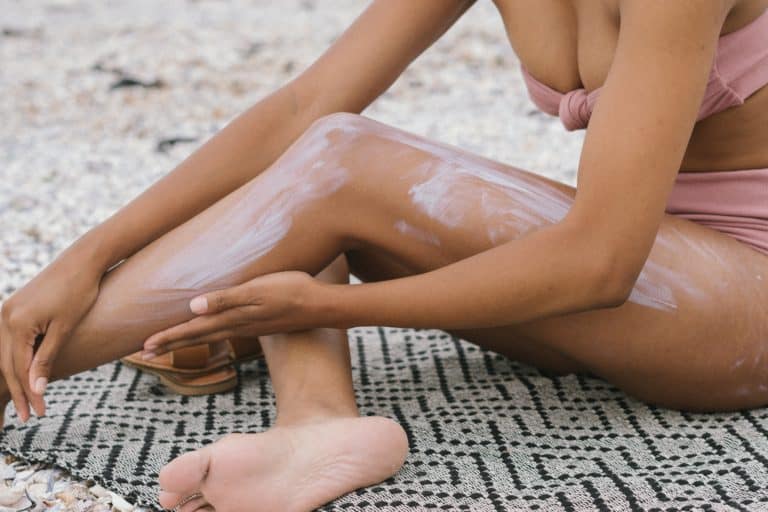Acne scars often look worse in pictures due to the detailed capture of high-resolution cameras, the impact of lighting and angles that highlight skin texture, and the use of filters in post-processing that can exaggerate imperfections. These factors combined make scars appear more prominent in photos than in real life.
This discrepancy can lead to self-consciousness and confusion. We delve into the intricacies of photography and its impact on skin appearance. Our goal is to demystify this phenomenon, offering insights into the science behind photography, skin texture, and the role of lighting. Whether you’re a photography enthusiast, someone dealing with acne scars, or simply curious, this blog aims to provide a clear, informative, and friendly guide to understanding this fascinating intersection of technology and skin health.
Key takeaways
- Cameras highlight acne scars more than the human eye.
- Lighting and angles in photography can exaggerate skin flaws.
- Social media often distorts skin appearance with filters.
How Pictures Make Acne Scars Look Worse

1. Photos Exaggerate Fine Details
Digital photography has revolutionized how we capture and view images. Unlike the human eye, which processes a continuous stream of light and color, a camera operates differently. It uses a sensor to convert light into electrical signals, creating a digital image.
This sensor, depending on its resolution, captures fine details with varying degrees of clarity. However, this process can sometimes exaggerate certain features, like acne scars, which might be less noticeable to the naked eye.
2. Differences Between Human Eye Perception and Camera Lens
The human eye is a marvel of biological engineering, capable of adjusting to light, focusing at different distances, and perceiving depth and color in a way that even the most advanced camera cannot mimic.
Our brain also plays a role, constantly interpreting and smoothing visual information. In contrast, a camera lens captures a fixed perspective, often unable to adjust with the same finesse. This static capture can make acne scars appear more prominent, as the subtleties of skin texture and depth are lost.
3. Lighting creates shadows and highlights imperfections
Lighting plays a pivotal role in photography and significantly impacts how skin, including acne scars, appears in photos. Harsh lighting, for instance, can create shadows and highlight imperfections. Conversely, soft, diffused light can smooth out skin texture and reduce the visibility of scars. Understanding and manipulating lighting is crucial in photography to achieve a more flattering depiction of skin.

4. High-Resolution Cameras and Detail Capture
Modern cameras, especially high-resolution ones, are designed to capture minute details. While this is great for landscapes and portraits, it can be a double-edged sword for those with skin imperfections like acne scars. These cameras can pick up and accentuate even the smallest flaws, which are often unnoticed in daily interactions.
5. Contrast and Color Balance in Photography
The way a camera processes contrast and color can also impact the appearance of acne scars. For instance, Iphone cameras may make your acne scars look worse because the software over-sharpen and over-contrast photos. Cameras often enhance contrast to make images more vivid, which can inadvertently emphasize scars. Similarly, color balance adjustments can make red or pigmented scars appear more pronounced than they do in natural light.
6. Effects of Flash and Artificial Lighting on Skin Appearance
Using a camera flash or being under artificial lighting conditions can create harsh shadows and highlight textural differences on the skin’s surface. This effect can make acne scars appear deeper and more severe. The direct, intense light from a flash can also reflect off oily or moist skin surfaces, further exaggerating skin imperfections.
7. Influence of Angles and Perspective
The angle at which a photo is taken can significantly affect how acne scars appear. Certain angles might cast shadows or create an illusion of depth, making scars seem more prominent. Learning to use angles to one’s advantage is a key aspect of photography, particularly for those concerned about how their skin looks in photos.

8. Skin Filters work both ways
Photo editing and filters can be a double-edged sword and while they can be used to smooth out skin and reduce the visibility of scars, over-editing can create unrealistic expectations and sometimes even draw more attention to the areas of concern. Heavy-handed use of filters can sharpen and define scars, making them more noticeable than they might be in a natural setting.
the psychological impact of pictures enhancing acne scars
In the age of high-definition photography and social media many individuals look perfect on screen. However in real life, things are much different and for individuals with acne scars, photographs that seemingly enhance these imperfections can have have a detrimental impact on us.
- Heightened Self-Consciousness: High-resolution images that accentuate acne scars can exacerbate feelings of self-consciousness. This is particularly true in a culture that often equates flawless skin with beauty. When acne scars appear more pronounced in pictures, it can lead to a heightened sense of imperfection and a distorted self-image.
- Social Media and Comparison: Social media platforms, where edited and filtered images are the norm, can further amplify insecurities. The tendency to compare oneself with these idealized images can lead to feelings of inadequacy and low self-esteem. This constant comparison trap, where one’s unedited reality is pitted against another’s curated perfection, can be mentally exhausting and damaging.
- Impact on Mental Health: The psychological effects can extend beyond transient feelings of insecurity. Chronic dissatisfaction with one’s appearance can lead to more serious mental health issues like anxiety, depression, and social withdrawal. In extreme cases, it can contribute to body dysmorphic disorder, a mental health condition where one obsessively focuses on perceived flaws in appearance.
- Undermining Confidence: For some, the impact goes beyond personal discomfort, affecting professional and social interactions. It can undermine confidence in various aspects of life, from hesitance in participating in social events to reluctance in pursuing certain career paths that require a public presence.
How to Avoid Letting Pictures Affect Our Confidence and Mental Health
- Embrace a Balanced Perspective: Understand that photographs are often not an accurate representation of reality. Lighting, angles, and camera lenses can all distort how things appear. Embrace the fact that everyone has imperfections, and they don’t detract from your value or capabilities.
- Limit Social Media Exposure: Be mindful of your social media consumption. If certain content makes you feel inadequate, it might be time to curate your feed or take a break. Remember, what you see online is often a highly selective and polished version of reality.
- Focus on Self-Care: Invest time in activities that make you feel good about yourself beyond physical appearance. Whether it’s pursuing a hobby, exercising, or spending time with loved ones, focusing on these aspects can bolster your self-esteem and overall well-being.
- Seek Support: If your feelings about your appearance start affecting your quality of life, consider seeking support from a mental health professional. Talking about your concerns can provide relief and help develop strategies to improve your mental health.
Conclusion
It’s clear that various factors contribute to why scars may appear more prominent in pictures. From the technical aspects of camera resolution and lighting to the psychological effects of social media and filtered images, we’ve explored the many facets of this topic.
Remember, the images we see on screens are often not perfect representations of reality. It’s important to approach our perceptions with a healthy dose of skepticism and self-compassion. Embracing our imperfections, whether in person or through a lens, is a key step towards a more authentic and self-accepting approach to beauty.
FAQs
Why do my acne scars look worse in photos?
Acne scars can look worse in photos due to high-resolution cameras capturing detailed skin texture, harsh lighting conditions, and certain camera angles emphasizing skin imperfections.
Do filters make acne scars look better or worse?
While filters can sometimes smooth out skin appearance, overuse or certain types of filters can actually accentuate acne scars and other imperfections.
Can lighting affect how acne scars appear in photos?
Yes, lighting plays a crucial role; soft, diffused light tends to minimize the appearance of acne scars, while harsh or direct light can make them more noticeable.





